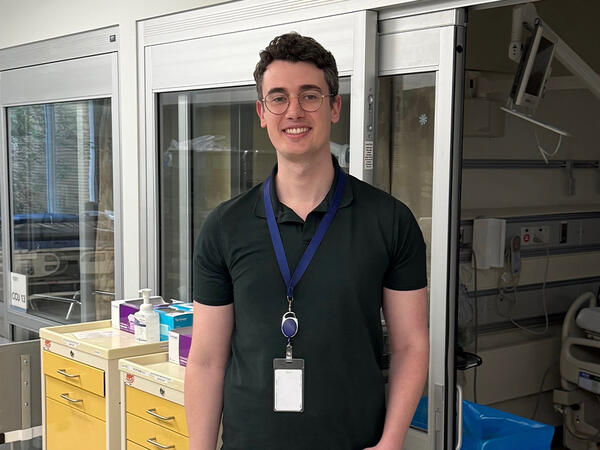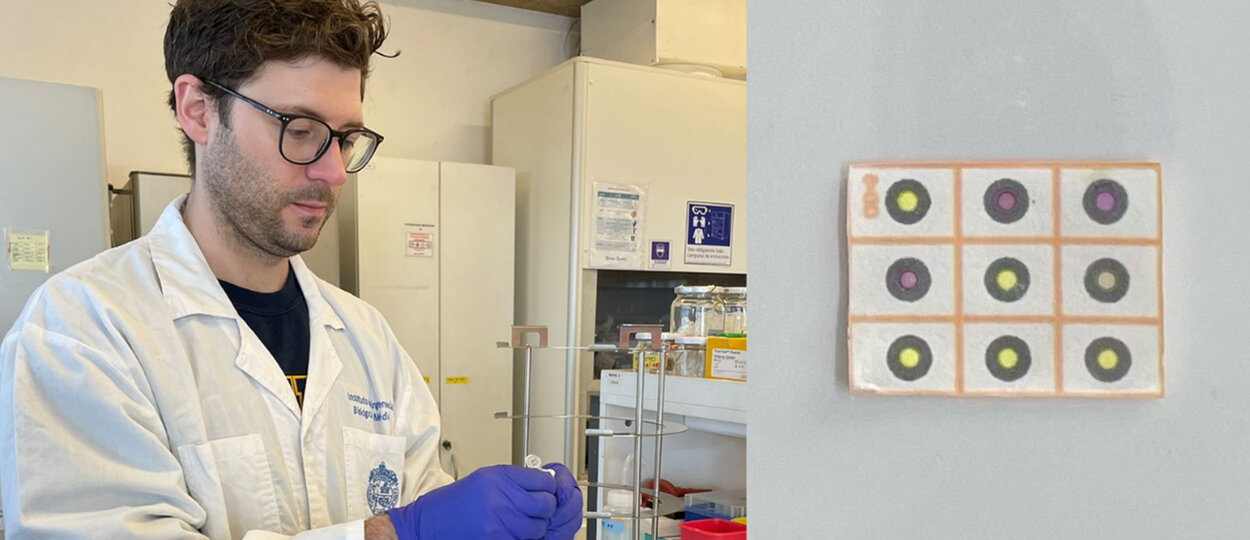For some people, synthetic biology may conjure up images of biohackers working away in DIY labs in their garage or basement. But for University of Toronto graduate student Justin Vigar, the field holds immense promise to improve the health and lives of people around the world.
Synthetic biology is a relatively new field of research that applies engineering principles to recreate fully functional biological systems. A recipient of an Emerging and Pandemic Infections Consortium Doctoral Award, Vigar is using synthetic biology to develop rapid, low-cost diagnostic tools to combat infectious diseases.
The gold standard for diagnosing many infectious diseases today is a technique called real-time reverse transcription-quantitative PCR (RT-qPCR), which is both sensitive and specific enough to detect small amounts of a particular microbe in a patient sample. However, the process is complex, requires expensive equipment and materials, and must be carried out by highly trained personnel.
“We talk a lot about South America and other countries in the global south but in most areas in Canada, including rural Alberta where I grew up, there’s no access to RT-qPCR,” said Vigar, a fourth year PhD student working with Keith Pardee, an associate professor in the Leslie Dan Faculty of Pharmacy.
This gap was especially apparent during the COVID-19 pandemic when many low- and middle-income countries struggled to track the spread of SARS-CoV-2 within their borders because they did not have the infrastructure, expertise and resources to conduct timely RT-qPCR testing for their populations. Rapid antigen tests helped to make testing more accessible but they aren’t as sensitive and cannot be easily scaled up to process hundreds of samples at a time.
“We wanted to fill that gap by building really accessible tools that could do rapid screening for COVID-19 and other infections, something that would be a midway between a rapid antigen test and RT-qPCR,” said Vigar.
More News
Image

Welcoming Ivy Lam as Academic Lead in Climate, Health & Sustainable Care
Assistant Professor Lam will guide the Leslie Dan Faculty of Pharmacy's efforts to embed environmental sustainability across the Faculty.
Read More
Image

Pharmacy alum’s research shows how full-scope practice improves cancer care
Honoured with a national award, Adrian de Boer says his residency experience was a powerful reminder that he's making a meaningful change to the pharmacy profession.
Read More
Image

Pharmacy alum passionate about helping community pharmacists practice to full scope
As a pharmacy leader at Rexall, Heidi Wittke uses frontline experience to lead initiatives that improve patient care
Read More
